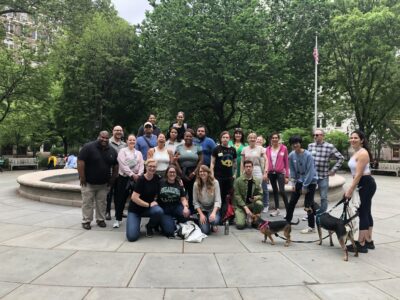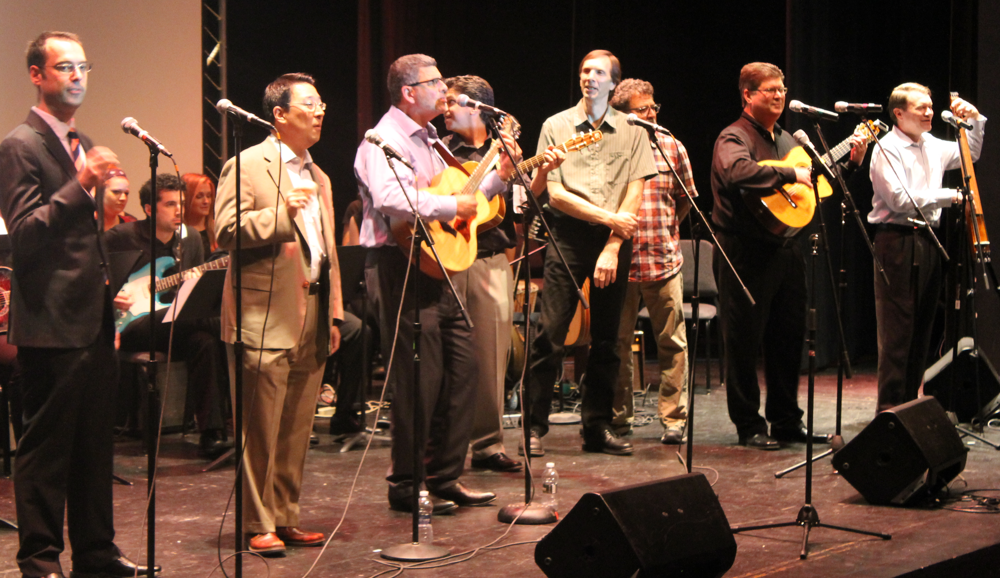The 3D printing movement to use digital models to make a solid, three-dimensional object is getting downright mainstream for engineering and scientific endeavors.
So it’s about time it made an impact in the music industry.
That was one of the many topics that the discussion panel at Drexel University’s Mandell Theater discussed on Thursday evening in an event geared toward music and technology.
The night started with a concert featuring the Drexel Mediterranean Ensemble, which showed the juxtaposition between more traditional music and instruments and modern music and instruments. There was also a sing-along to Elvis Presley’s “It’s Now or Never.” The 100 attendees accessed the lyrics of the song by scanning a QR code on the program.
Following the concert, a discussion panel, led by Bruce Kaminsky, spoke on how technology affects and will continue to affect the music industry. Most members of the panel were industry professionals, varying from musicians to a producer of physical copies of CDs.
“Some folks will equate technology with the digital aspects of the zeros and ones of existence,” Kaminsky, who is the director of the Mediterranean Ensemble, said. “But technology has always existed.”
Kaminsky also said that the emerging technologies and popular websites like YouTube are making it easier for the unknown artist to gain popularity.

“In some ways it’s evening out the playing field,” he said. “Now the individual who has an idea has almost as good of a shot at becoming known.
One of the most important topics of the evening was one you’ve heard before: bolstering STEM education in schools. But, echoing a distinction he’s made before, Youngmoo Kim, the energetic director of Drexel’s multidisciplinary ExCITe Center pushed on what STEM can mean, particularly at a music-tech event.
“We advocate for STEAM, which is integrating the arts,” Kim said. “We do projects that cross the technology and the arts, and we think that is a incredibly fertile intersection. A lot of really, really cool stuff happens at the boundaries, not just coming from engineering, not just coming from artistic fields, but when you put these worlds together.”

Here are some other highlights from the music technology event.
- 3D printing is becoming common in the music industry. The guitar picks used in the performance were made this way, and parts for 10-year-old instruments that are no longer kept in stock have been remade using this process.
- Because of advances in technology, music is becoming much more visual than before. Many people go to YouTube when they want to hear a new song rather than going to iTunes, in order to gain that extra visual element that listening to the mp3 on iTunes lacks.
- Technology is being used to even the playing field for new and up and coming artists. As a new artist it is much easier to be discovered by utilizing tools like YouTube.
Join the conversation!
Find news, events, jobs and people who share your interests on Technical.ly's open community Slack

Philly’s IT department fires long-tenured staff amid a high-level shakeup of priorities

Why is it so hard to find entry-level software engineering jobs?

This Week in Jobs: Get out there with 22 new job opportunities available to you!

